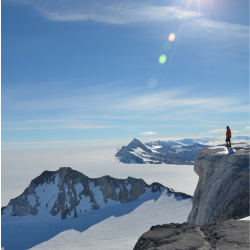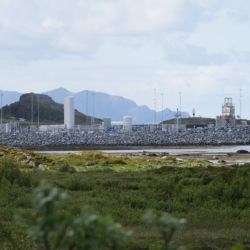-
Study
-
Quick Links
- Open Days & Events
- Real-World Learning
- Unlock Your Potential
- Tuition Fees, Funding & Scholarships
- Real World Learning
-
Undergraduate
- Application Guides
- UCAS Exhibitions
- Extended Degrees
- School & College Outreach
- Information for Parents
-
Postgraduate
- Application Guide
- Postgraduate Research Degrees
- Flexible Learning
- Change Direction
- Register your Interest
-
Student Life
- Students' Union
- The Hub - Student Blog
- Accommodation
- Northumbria Sport
- Support for Students
-
Learning Experience
- Real-World Learning
- Research-enriched learning
- Graduate Futures
- The Business Clinic
- Study Abroad
-
-
International
International
Northumbria’s global footprint touches every continent across the world, through our global partnerships across 17 institutions in 10 countries, to our 277,000 strong alumni community and 150 recruitment partners – we prepare our students for the challenges of tomorrow. Discover more about how to join Northumbria’s global family or our partnerships.
View our Global Footprint-
Quick Links
- Course Search
- Undergraduate Study
- Postgraduate Study
- Information for Parents
- London Campus
- Northumbria Pathway
- Cost of Living
- Sign up for Information
-
International Students
- Information for International Students
- Northumbria and your Country
- International Events
- Application Guide
- Entry Requirements and Education Country Agents
- Global Offices and Regional Teams
- English Requirements
- English Language Centre
- International student support
- Cost of Living
-
International Fees and Funding
- International Undergraduate Fees
- International Undergraduate Funding
- International Masters Fees
- International Masters Funding
- International Postgraduate Research Fees
- International Postgraduate Research Funding
- Useful Financial Information
-
International Partners
- Agent and Representatives Network
- Global Partnerships
- Global Community
-
International Mobility
- Study Abroad
-
-
Business
Business
The world is changing faster than ever before. The future is there to be won by organisations who find ways to turn today's possibilities into tomorrows competitive edge. In a connected world, collaboration can be the key to success.
More on our Business Services-
Business Quick Links
- Contact Us
- Business Events
- Research and Consultancy
- Education and Training
- Workforce Development Courses
- Join our mailing list
-
Education and Training
- Higher and Degree Apprenticeships
- Continuing Professional Development
- Apprenticeship Fees & Funding
- Apprenticeship FAQs
- How to Develop an Apprentice
- Apprenticeship Vacancies
- Enquire Now
-
Research and Consultancy
- Space
- Energy
- AI Futures
- CHASE: Centre for Health and Social Equity
- NESST
-
-
Research
Research
Northumbria is a research-rich, business-focused, professional university with a global reputation for academic quality. We conduct ground-breaking research that is responsive to the science & technology, health & well being, economic and social and arts & cultural needs for the communities
Discover more about our Research-
Quick Links
- Research Peaks of Excellence
- Academic Departments
- Research Staff
- Postgraduate Research Studentships
- Research Events
-
Research at Northumbria
- Interdisciplinary Research Themes
- Research Impact
- REF
- Partners and Collaborators
-
Support for Researchers
- Research and Innovation Services Staff
- Researcher Development and Training
- Ethics, Integrity, and Trusted Research
- University Library
- Vice Chancellors Fellows
-
Research Degrees
- Postgraduate Research Overview
- Doctoral Training Partnerships and Centres
- Academic Departments
-
Research Culture
- Research Culture
- Research Culture Action Plan
- Concordats and Commitments
-
-
About Us
-
About Northumbria
- Our Strategy
- Our Staff
- Our Schools
- Place and Partnerships
- Leadership & Governance
- University Services
- Northumbria History
- Contact us
- Online Shop
-
-
Alumni
Alumni
Northumbria University is renowned for the calibre of its business-ready graduates. Our alumni network has over 253,000 graduates based in 178 countries worldwide in a range of sectors, our alumni are making a real impact on the world.
Our Alumni - Work For Us
COVID-19 shone a bright light on the relationship between the wildlife trade, the risks of zoonotic diseases, and broader concerns about wildlife economies and public health, especially in the Global South. Wildlife Trade Futures is a research project that aims to understand how the global wildlife trade landscape and related economies are being re-shaped in the COVID-19/post COVID-19 era and with what consequences. Envisioned and started in response to the specifics of COVID-19, the project has evolved to use a range of social science approaches to critically examine the relationships between the wildlife trade/wildlife economies and concerns around zoonoses and public health, and wildlife-based livelihoods. The project aims to provide policymakers with evidence-based guidelines on how to mitigate the ecological and public health risks of wildlife trade in the (post)COVID-19 era in ways that are attentive to power relations, inequality and justice.
The research activities focus on three areas: (1) tracking global trends in policy responses to COVID-19 and wildlife trade; (2) assessing the impacts of COVID-19 and concerns around zoonotic diseases on wildlife trade supply/value chains and livelihoods, focusing on Cameroon and the Democratic Republic of Congo (DRC); and (3) collating insights into how critical social science perspectives can enhance our understanding of the relationship between wildlife economies and zoonosis.
The collaborative research and activities involve Dr Francis Massé, previously at Northumbria University and now at Durham University, and collaborators at the University of Birmingham, University of Manchester, University of Sheffield and the Centre for International Forestry Research (CIFOR) with local CIFOR teams in Cameroon, the DRC and Zambia. The project was originally funded by the UKRI-GCRF/Newton Fund grant and continues to examine the relationships between the wildlife trade (legal and illegal), public health, and socio-economic/ecological justice and development.
Beyond scientific publications, the project is also working towards public and policy facing outputs that to date include a virtual seminar series, series of blog posts and a policy brief.
You can find out more about the project, team, articles, outputs and follow updates via the project’s dedicated website and X/Twitter page.
Projects
- Pollinating Insects for Sustainable Livelihoods in the Peruvian Amazon
- Adapting Crisis Responses to Salt-Droughts in Vietnam
- WAVES
- Women's collective action and gender just transitions
- State of the World's Volunteerism Report
- DignArte Cimarrona: Tackling Racialised Gender-Based Violence
- Transforming Volunteering in Development
- Volunteering at Habitat
- Sajag-Nepal
- Small-scale Private Development Initiatives
- Volunteering in the Indian Sundarbans
- Blackness in Resistance
- Four Women
- Diasporic communities and the climate crisis
- Towards Unlearning Colonialism in Development Research and Practice
- Reference Guide on Volunteering
- Poetics of Diplomacy
- RECLAMA
- Asia-Pacific ClimateScapes
- Wildlife Trade Futures
- VSO Blended Volunteering
- Diaspora groups, civil society and development
- IFRC Volunteering Policy Study
- Refugee Youth Volunteering Uganda (RYVU)
- Living Deltas
- ViCE
- Women and photography
- REMATCH
- Proactively Living with Floods
- Global Review on Volunteering
Latest News and Features

Royal Honour as leading researcher awarded Polar Medal
Professor John Woodward has been awarded The Polar Medal in recognition of his outstanding…

Northumbria University leads pioneering research to tackle hidden lead exposure in children
Pioneering research launches in Leeds to test new approach to assessing the risk to children…

International students at Northumbria embark on FA Cup dream
A team of international college students studying at Northumbria University could soon find…

Northumbria expands results day support for students
Northumbria University is expanding and enhancing the support it provides to students receiving…

Supporting the ethical development of UK spaceports
A Northumbria University academic is helping to ensure the UK’s ambitions to build a thriving…

Research reveals Arctic region was permafrost-free when global temperatures were 4.5˚C higher than today
Scientists have found evidence that the Asian continent was free of permafrost all the way…

Northumbria wins recognition for expanding access to higher education
Northumbria University has been named Higher Education Institution of the Year at a prestigious…

Satellites observe glacier committing “ice piracy”
A glacier in Antarctica is committing “ice piracy” – stealing ice from a neighbour – in a phenomenon…



